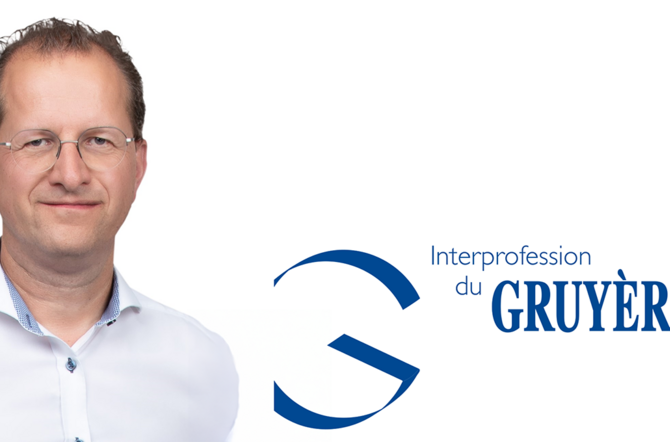Internal cohesion: a prerequisite for the future of the Gruyère AOP sector
Romane Botteron, a farmer in the Neuchâtel mountains, has long been the voice of milk producers on committees and the IPG Committee. As he prepares to step down at the end of 2023, he looks back on 15 years of commitment, the latest news and the outlook for the industry.

"Our industry is being affected by an extremely volatile and complex environment. The only viable response is to act, as best we can, and as quickly as possible, with a shared objective: to secure its future.”
Romane Botteron, milk producer, former delegate and member of the IPG Committee
Romane Botteron, how did you come to join the IPG Committee?
I obtained my Master's degree in 1998, a few years after taking over the family estate and starting my own family. I was young, full of energy and dreams too. I joined the IPG in 2008, after working for various companies and committees in the canton of Neuchâtel. I was appointed as a delegate to the assembly of cheese-making companies of our dairy federation to replace André Aebi, a founding member of the IPG, and to the IPG's assembly of delegates to join the committee.
What were those dreams?
The main one was both grand and simple: to raise the price of milk to CHF 1 per litre. It’s currently set at more than 94 cents, and even close to a franc for high-quality milk. Logically, my priority was to defend the interests of milk producers. But I soon realised that I needed to look at the bigger picture: when Gruyère AOP is doing well, producers are doing well, Gruyère AOP is better, and so are sales, the price per kilo of milk and our product's reputation. It's a virtuous circle that benefits everyone involved in the dairy economy.
What has your involvement been?
I was a member of the Committee and a member of the quality and planning committees for over 15 years. I was responsible for passing on information from the IPG to the producers in my region during the various meetings of our dairy federation, Prolait. This role is very important for mutual understanding and is not sufficiently recognised in my opinion. In performing these roles, I've attended a lot of meetings and travelled many miles. I don't regret it; I've met some extraordinary people, driven by the desire to consolidate the corporation. I crossed swords when I felt it was right to do so. The best decision was often the one that suited no one 100%... I always kept the collective in my sights.
What major issues have you dealt with in the committees?
In 2015, we tightened up the quality criteria to provide a greater incentive. The effects were immediate, so much so that today the quality of milk has clearly improved. The 3 pillars - the producer, the infrastructure and the cheesemaker - are extremely reliable. Despite that, there may be quality problems that are difficult to identify. The IPG supports the dairies concerned. As for quantity, we have been fighting for years over production limits. As well as increasing the health risk, overly large farms that are no longer able to graze their animals are moving away from the spirit of the AOP and the values of the IPG.
What experiences have marked your career at the IPG?
I remember the milk strike in 2009, for example. Industrial milk got 2 increases of 6 cents. As Gruyère producers, we demanded an increase of 10 cents per kilo of milk or nothing. The refiners, for their part, had set their ceiling at 4 cents. We stood our ground. Result: 0 cents at the time. After that, it took 10 years of negotiation to get 4 cents... This experience taught me that the most important thing was to identify the best interests in each context. In this case, a consensus that would enable the entire industry to move forward together had to take precedence over defending milk producers.
What would you like to see from the IPG?
Like all sectors, the industry is now affected by an unprecedented, extremely volatile and complex environment. The only viable response is to act, as best we can, and as quickly as possible, with the shared objective of securing its future. Price stability is a unique advantage offered by the IPG that must be preserved. To achieve this, we need support and conviction, above and beyond power struggles. Consumers love our product, our values and the image we convey. IPG members can be proud of their work and their industry. There is an urgent need for complacency to give way to internal cohesion and determination. This is the only way the IPG will be able to make the big decisions that will enable it to move with the times and move forward.






